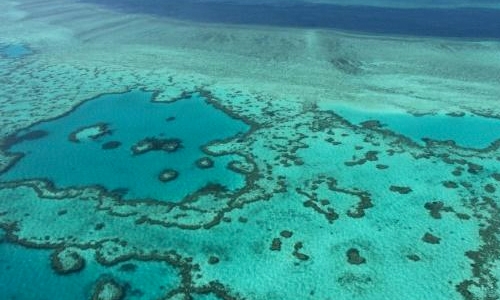'Underwater wasteland' worries after cyclone hits Barrier Reef
Sydney : A powerful cyclone that smashed into northeastern Australia could have caused further damage to the under-pressure Great Barrier Reef, turning parts into an "underwater wasteland", scientists warned Thursday.
There are already fears for the survival of corals in the central and northern areas of the World Heritage-listed marine ecosystem that stretches 2,300 kilometres (around 1,430 miles) off the Queensland state coast, after two consecutive years of mass bleaching from warming sea temperatures.
While storms can bring relief through rain and cloud cover to corals suffering from heat stress, Tropical Cyclone Debbie, which barrelled through the region this week, mostly struck the reef's southern parts, which have not been as seriously impacted by bleaching.
"It basically came through the southern threshold where you get a transition from the severely bleached reefs to healthy reefs, so it's hit another part of the reef which half-escaped (the mass bleaching) this year," James Kerry, a marine biologist at James Cook University, told AFP.
"It would have done a lot of damage in the corridor that it came through, perhaps over a range of something like 100 kilometres (60 miles), so quite a substantive area."
The reef is already under threat from farming run-off, development and the crown-of-thorns starfish, as well as bleaching, which has been blamed on global warming.
When destructive Cyclone Yasi struck northeastern Australia in 2011 following major flooding it badly damaged the reef, degrading water quality and depleting overall cover by 15 percent.
Ongoing inclement conditions mean the extent of the damage from Debbie is not yet known.
Researchers said the impact of previous severe cyclones suggested destruction could be patchy.
"The damage can vary a lot from just minor damage, so for example the tips of corals broken off, all the way through to the cyclone picking up really big coral boulders and some of these are three or four-metres across… just smashing the reef," Mark Read, operations manager at the Great Barrier Reef Marine Park Authority told AFP.
"So it almost turns what you would think about a coral reef into this strange wasteland underwater."
Read added however that reefs damaged by cyclones previously had shown "quite significant recovery within three to five years" if there were no repeat disturbances, while much of the marine life dependent on the coral swim away or deeper during storms before returning later.
Related Posts

